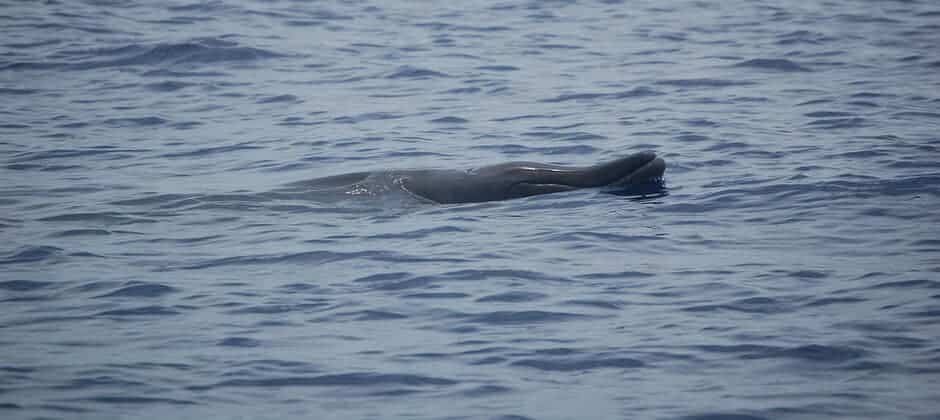Share this article
Navy sonar disturbs Blainville’s beaked whale foraging
Blainville’s beaked whales rely heavily on echolocation to track down prey during deep dives under the ocean’s surface. They use clicks to locate squid hundreds of meters down, sometimes diving alongside others in their social groups.
U.S. Navy vessels, which use mid-frequency active sonar, often share the waters with the whales. At a distance of 25 meters away, these sonar noises are about 150 decibels, or about as loud as a jet taking off. Researchers wondered whether the sonar used during Naval exercises disturbed the whales’ foraging activities.
In a study published recently in Marine Mammal Science, Eiren Jacobson, a research fellow in mathematics and statistics at the University of St Andrews in Scotland, and her colleagues examined sounds recorded under water to the northwest of the Hawaiian island of Kauai at the Pacific Missile Range Facility.
The work was funded by the Navy. “The Navy has quite a large research arm. They are interested in these questions for purposes of permitting for training activities,” Jacobson said.
The researchers analyzed periods when they detected Blainville’s beaked whale (Mesoplodon densirostris) echolocation clicks before Navy training exercises began. They continued to monitor for these whale sounds during the exercises but before the Navy sonar began, as well as during the time the sonar was activated.
The team detected fewer echolocation clicks from the whales when the sonar began. When sonar was 150 decibels, whale clicks dropped by 77% compared to the period before the sonar started, but while other types of Navy exercises were going on. What’s more, clicks dropped by 44% before any of the exercises began, including sonar.
The distinction between those two percentages is important, she said, as some other studies that have looked at the impacts of Navy sonar activity on Blainville’s beaked whales considered the baseline to be during exercises but before the sonar was turned on. But this study reveals that the general disturbance and noise caused by large boats cruising around can also affect the foraging behavior of these whales.
“It matters what you treat as baseline,” Jacobson said.
It’s unclear whether the whales are leaving the area altogether during these sonar exercises or whether they are sticking around but not diving for food as much. If it’s the former, they may be forced to leave optimal feeding areas. If it’s the latter, they may be forced to go hungry for a period. “Either way, there are implications for population-level effects from sonar,” Jacobson said.
Header Image: Blainville’s beaked whales use echolocation to forage for squid deep in the ocean. Credit: MatthewGrammatico








